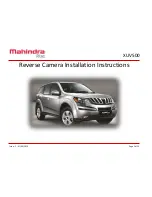
Exposure too short or too long
The camera will make automatic exposures
as short as 1/60 second. If the microscope
illumination is too bright, the camera will
“beep” and the display will show:
Place a neutral
density filter over the
microscope illuminator to increase the
exposure time. Do
not turn the light
down, as this will cause a color shift with
color film.
Automatic exposures can be as long as
16
1
⁄
2
minutes. If the light is too dim, the
camera will “beep” and show:
Check that the light is
turned up to the
brightest setting, and that the neutral
density filter (if used) has been removed.
If there still is not enough light, you must
make a manual exposure.
Manual operation
Set the camera for manual mode. Press
the shutter button to start the exposure,
and watch the display as it shows the
elapsed time. Press the button a second
time to end the exposure.
Special exposure techniques
Exposure meter
The camera has a built-in exposure meter
that is used in
Automatic mode. When
you press the shutter button, the meter
measures the light from the specimen,
calculates the exposure time and then
displays the time for a few seconds
before beginning the exposure. You can
cancel the exposure before it starts by
pressing the shutter button a second
time, and use the exposure indicated
when making manual exposures.
Reciprocity correction
When set for
Automatic mode, the
camera will automatically adjust the
exposure time to compensate for
reciprocity failure. With Type 339 color
film, it also adjusts the filtration. The
camera contains a built-in color
conversion filter that moves into position
when needed. The filter adjusts the color
temperature of the tungsten/halogen
microscope illuminator (2800-3400
°
K) to
more closely match the color balance of
the film (5500
°
K). Additional
light-balancing filtration will not be
necessary for most situations.
< 1/60
> 16:30
8
English


































